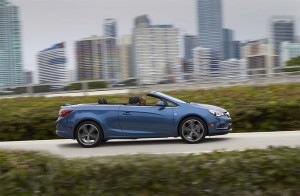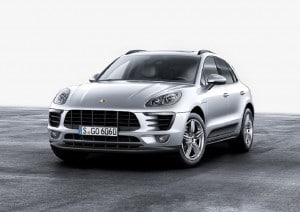
Buying a car isn’t an easy process these days. As vehicles get more complex, so does the once-simple process of finding the right car, truck or crossover – and then understanding all of its features. That’s why it’s increasingly important for customers to have access not just to the traditional salesperson but vehicle specialists, notes market research firm J.D. Power and Associates in its latest Sales Satisfaction Index.
The annual study delivers a few surprises as it examines how pleased shoppers were with the new vehicle buying process. Porsche, which has also led a number of recent quality studies, was top brand overall. But resurgent Buick was named the top mainstream brand, according to the 2017 SSI study.

“Owners can be challenged with the complexity of today’s vehicles,” said Chris Sutton, vice president of automotive retail practices at J.D. Power. That’s why it’s critical for dealers to employ specialists who can “show the technology to the owner (to) really ensure the customer gets the most benefit out of their vehicle.”
Owners who don’t have a clear understanding are less likely to use the features of their vehicles. They’re also less likely to be satisfied, which can translate into lower brand loyalty.
(High-tech safety features “APEAL” to consumers, J.D. Power finds. For more, Click Here.)
“Whether it’s taking a few minutes with repeat buyers to refresh their knowledge of a technology or a few hours with first-time buyers, it’s a small investment with long-term benefits,” added Sutton.

That’s all the more the case as buyers are confronted with some of the most complex technologies they might encounter anywhere, from home to office. More and more vehicles are now loaded up with high-tech infotainment systems, as well as complex advanced driver-assisted safety, or ADAS, technologies like lane keeping assist, auto-park and forward collision warning with auto-braking. The trend is to even more complex semi- and fully autonomous vehicle features in the near future.
Not surprisingly, Power’s research found that dealers are trying to cope with all this new vehicle technology by using more technology in their showrooms. About a quarter of all salespeople were reported by shoppers to be using tablet computers during the sales process.
(Buick lands in top 3 in latest Consumer Reports reliability study. Click Here for more.)
But consumers are also going high-tech, about three-quarters of shoppers going to the Internet during at least some part of the buying process. About 42% of shoppers also used the more quaint telephone to call dealers, most often to check vehicle pricing and inventory, reports Power.
Perhaps no surprise, the 2017 SSI reveals that the younger the buyer, the more demanding they are, as well. That translated into lower satisfaction scores.
“Gen Y has high expectations and less experience than their older counterparts with the vehicle-buying process, which are likely contributing to their lower satisfaction,” said Sutton.
Among all brands, Porsche came out on top for the second consecutive year, with a score of 824. It was followed by Infiniti, at 815 and, in third, Mercedes-Benz. But Mercedes was tied with Buick, both scoring 809. Buick has been gaining ground in a number of recent quality studies, as well, notably the most recent annual auto reliability survey from influential Consumer Reports magazine.
(For more on the new CR Auto Reliability Index, Click Here.)
Mini, which had been tops among mainstream makers from 2010 to 2015, slipped to second, with a score of 797. Notably, a second General Motors brand, Chevrolet, came in third, with a score of 789.







